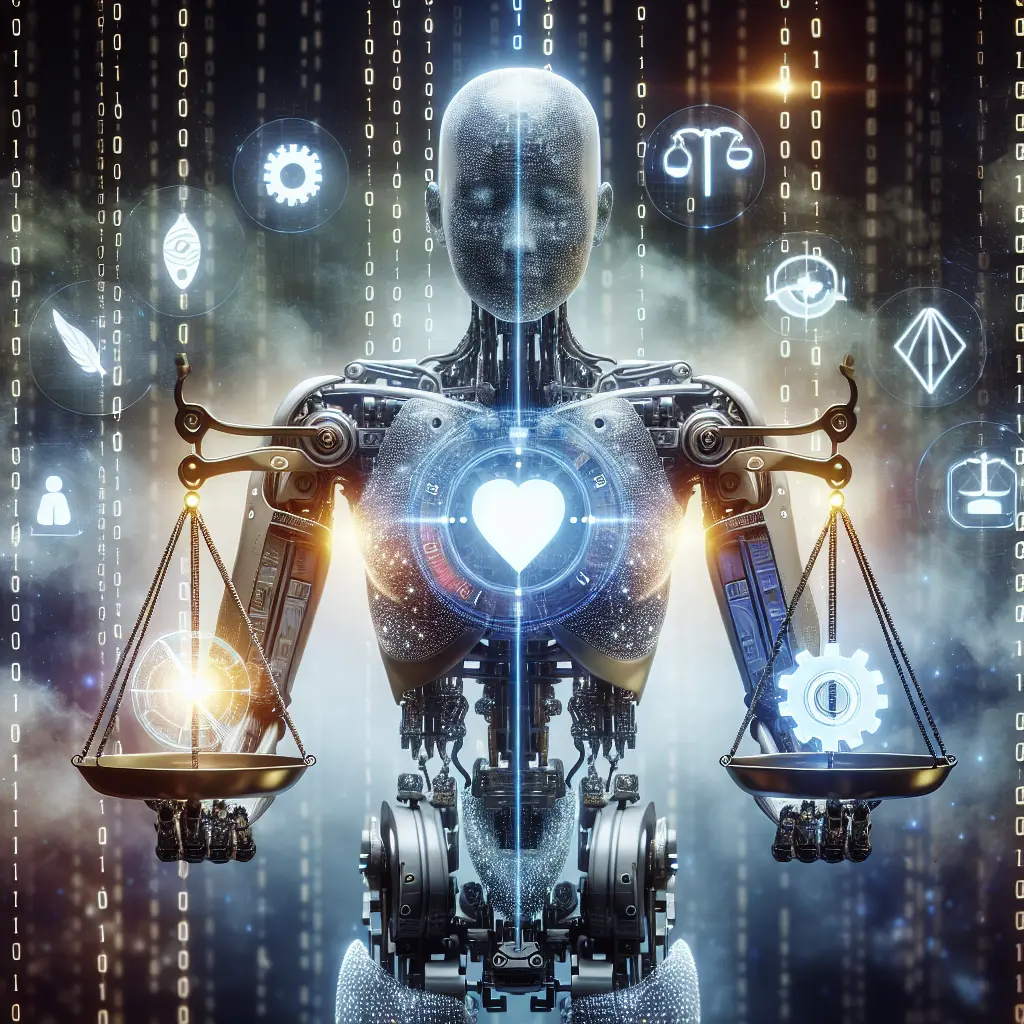
Exploring Ethical Considerations in AI-Powered Decision Making
As artificial intelligence continues to permeate various aspects of modern life, the conversation around ethical considerations in AI has become more critical than ever. The integration of AI into decision-making processes holds great promise but also poses significant challenges. Key concerns include bias, transparency, and accountability. Addressing these challenges is essential for fostering responsible AI development that aligns with societal values and ethical standards.
Understanding AI Decision Making Ethics
AI decision-making ethics is a multifaceted discipline that seeks to align AI system operations with ethical standards and societal values. As highlighted by Joas Pambou's recent work with image-to-text and text-to-speech models, the potential benefits of AI are immense. Pambou's application enhances accessibility for individuals with visual impairments by providing audible descriptions of images, exemplifying responsible AI development.
However, as Apple recently acknowledged, ethical considerations in AI are complex. The tech giant faced controversy over the alleged use of unethically obtained data to train its AI models. While Apple refuted claims of using stolen YouTube data, the incident underscores the importance of transparency and accountability in AI development.
The Role of Transparency and Accountability
Transparency and accountability are cornerstones of ethical AI practices. Users must understand how AI systems reach decisions, ensuring these systems remain answerable for their actions. A notable example is Google's new weather prediction system, NeuralGCM, which combines AI with traditional physics-based models to enhance forecast accuracy. As reported by MIT Technology Review, such hybrid models highlight the need for transparent methodologies that can be scrutinized and validated by experts.
Moreover, the societal impact of AI systems extends to areas like healthcare. For instance, AI's role in surgery is reshaping operating rooms by augmenting human capabilities with advanced tools. This development emphasizes the importance of maintaining trustworthiness and accountability in life-critical domains, as discussed in recent studies on AI-assisted surgeries.
Addressing Bias and Ensuring Fairness
AI bias is a pressing ethical challenge that requires immediate attention to prevent perpetuating existing inequalities. Biased algorithms can lead to unfair outcomes, particularly in sensitive areas like criminal justice or loan approvals. Efforts to combat AI bias involve developing equitable systems through comprehensive training datasets and fair algorithmic design.
A recent article on building trust in AI highlights the responsibility technology companies have in actively addressing these biases. Implementing robust AI ethical guidelines is critical for ensuring fairness and protecting human rights.
Navigating AI Ethical Guidelines and Governance
Establishing clear ethical guidelines and governance frameworks is essential for fostering responsible AI development. These frameworks should promote innovation while safeguarding public interest. Recent discussions emphasize the importance of AI governance frameworks that balance regulatory oversight with the flexibility needed for technological advancement.
Ethical guidelines must also address moral implications associated with AI deployment. For example, automated scientific discovery initiatives like the AI Scientist project raise questions about authorship and intellectual property, demanding careful consideration of ethical standards.
Societal Impact and Human Rights
The societal impact of AI technologies is profound, necessitating alignment with human rights principles. As AI continues to influence critical aspects of daily life, ensuring these technologies enhance human well-being without compromising ethical standards is paramount. The convergence of AI with design and creativity, as discussed in The Next Frontier article, showcases how AI can transform cultural landscapes while respecting diverse perspectives.
The Future of Ethical AI Development
The journey toward ethical AI development is ongoing, requiring continuous reflection and adaptation to emerging challenges. As AI technologies evolve, stakeholders must remain vigilant in upholding ethical considerations in AI decision-making ethics. This involves embracing transparency, accountability, fairness, and human rights as foundational principles.
In conclusion, achieving a balance where AI serves humanity positively without compromising ethical standards is a shared responsibility among technology developers, policymakers, and society at large. By fostering a culture of responsible AI development, we pave the way for a future where AI enhances human capabilities while respecting fundamental ethical principles.
Conclusion: Paving the Way for Ethical AI
In conclusion, the integration of AI into societal frameworks presents profound ethical challenges that demand our attention. As we navigate the complexities of AI-powered decision-making, it's imperative to uphold ethical principles like transparency, accountability, fairness, and respect for human rights. These foundational elements are crucial as AI systems continue to influence critical sectors such as healthcare, finance, and criminal justice.
Transparency and accountability are vital in ensuring AI systems are answerable for their decisions. As demonstrated by Google's NeuralGCM weather prediction system, transparent methodologies allow for expert validation and trustworthiness in AI applications. Similarly, tackling AI bias is essential to prevent reinforcing existing inequalities. Technology companies must prioritize equitable algorithm design and comprehensive training datasets to foster fair outcomes.
Establishing robust ethical guidelines and governance frameworks is key to promoting responsible AI development. These frameworks should balance innovation with regulatory oversight, ensuring that AI technologies align with public interest and human rights principles. The societal impact of AI is extensive, requiring a commitment to enhancing human well-being while maintaining ethical standards.
As we look to the future of AI, continuous reflection and adaptation to emerging challenges are necessary. It is a shared responsibility among developers, policymakers, and society to cultivate a culture of ethical AI development. By prioritizing ethical considerations in AI endeavors, we can achieve a harmonious balance where technology serves humanity positively without compromising moral values.
We invite you to reflect on your own experiences and thoughts regarding AI ethics. How can we collectively ensure that AI systems remain aligned with societal values? Share your insights in the comments below, and let’s continue the conversation on this critical journey towards ethical AI.
Thank you for joining us on this exploration. Together, let's shape a future where AI enhances our capabilities while upholding the highest ethical standards.
Author: Harper Dawson